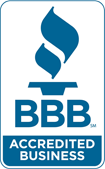
Bankruptcy Lawyer for Alabama Businesses
Running your own struggling small business can leave you personally liable for the business’s debts. Most people assume that a small business that is failing will have to file for business bankruptcy if it cannot pay its debts. However, the appropriate type of bankruptcy to file in connection with business debt actually depends on the structure of the business. Knowledgeable Montgomery bankruptcy attorney Charles Grainger can help you decide whether it would be prudent to file for bankruptcy and what kind of bankruptcy to file, and he can represent you or your business.
Sole Proprietorships and Bankruptcy in Alabama
The structure of your business will help determine whether Chapter 7 bankruptcy is a sound choice. Many small businesses are sole proprietorships, which means that if you are the owner, you are personally responsible for business debts. Because the sole proprietorship is not a separate entity, it does not file a separate Chapter 7 bankruptcy. Rather, you file a personal bankruptcy to deal with mounting debt and the business’s debts are treated as personal debts in the bankruptcy. All your dischargeable debts, including those for your small business, are wiped out. With a personal bankruptcy, you can protect business assets by using exemptions and continue operating the business. This is in contrast to business bankruptcies in which there is no discharge and no way to protect assets as the exemption system does.
As a sole proprietor, you can also file a Chapter 13 bankruptcy. This will allow you to keep all your assets and use a debt repayment plan over a period of years to obtain a discharge. Sole proprietors with many assets may have those assets sold in a Chapter 7 bankruptcy. But with a Chapter 13 bankruptcy, you keep your business assets, reorganize your debt, use tools like cramdowns, and continue to run your business.
Other Business Entities
Partnerships, corporations, and limited liability companies (LLCs) present a more challenging situation. A partnership is considered a separate legal entity and is eligible for Chapter 7 business bankruptcy in which the bankruptcy administrator will close the business and liquidate its assets so that the partnership’s creditors can be paid. As previously noted, there is no discharge. In such a scenario, the partnership’s bankruptcy will not affect partners’ personal liability. However, you may be liable for business debts if you are a general partner in a partnership and there are insufficient assets to pay off all the creditors. This could lead to you having to file your personal Chapter 7 bankruptcy.
Corporations and LLCs are also separate legal entities that can file a Chapter 7 business bankruptcy in which there is no discharge. As with a partnership, a bankruptcy administrator liquidates the business’s assets and pays creditors. If you cosigned or personally guaranteed a corporate debt, you will still owe that debt after business bankruptcy and would have to obtain a discharge by filing a personal Chapter 7 bankruptcy.
File Chapter 7 Business Bankruptcy With An Alabama Bankruptcy Lawyer
Filing for bankruptcy is a detailed and time-consuming process. If you do not handle it perfectly, you may be left with some debts that are not discharged or you may lose significant amounts of property for failing to apply exemptions correctly. While business bankruptcy offers neither discharge nor exemptions, it can still leave you personally on the hook for certain debts of your business. Experienced Alabama bankruptcy lawyer Charles Grainger can evaluate your business and personal debts to give you advice about long-term solutions that are tailored to your particular situation. We serve clients throughout South-Central Alabama with office located in Montgomery, Prattville, and Troy. Call us at (334) 260-0500 or contact us online to schedule a consultation.
Client Testimonial
”I met with Mr. Grainger today and I feel relieved!! The professionalism started with Tammy telling me everything is going to be okay and that things are fixable! Mr. Grainger is extremely professional, honest, and his Christian values left me feeling at peace! I’m thankful to the Grainger Law Firm because of their expertise and compassion! I have peace of mind knowing there’s a plan of action! Thank you for all of your help!!” – Michelle Campbell (Google Review)


 Attorney Charles Grainger possesses decades of legal experience focused on debtor-creditor law, bankruptcy, and business law. His legal work is designed to help clients overcome debt and secure a stronger financial footing. He also provides legal services to entrepreneurs and business owners. Grainger Legal Services takes a comprehensive approach to debt relief and financial education for clients in south-central Alabama. [
Attorney Charles Grainger possesses decades of legal experience focused on debtor-creditor law, bankruptcy, and business law. His legal work is designed to help clients overcome debt and secure a stronger financial footing. He also provides legal services to entrepreneurs and business owners. Grainger Legal Services takes a comprehensive approach to debt relief and financial education for clients in south-central Alabama. [ 


